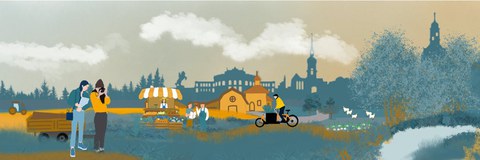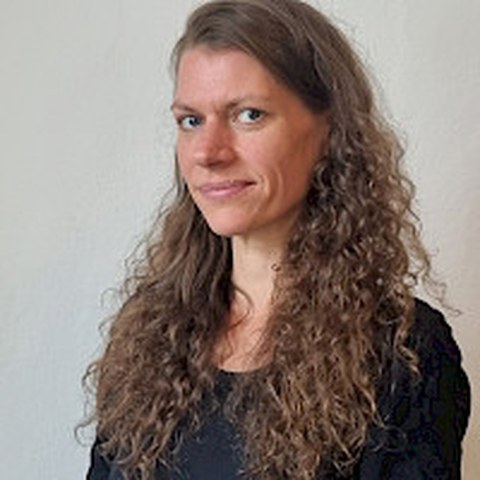Aug 17, 2022
Interview with Ramune Pansa on the BMBF project OLGA
From 25 April to 5 May 2022, four focus groups were held as part of the OLGA project on the topic of "Prospects for sustainable land use and regional value creation in the Dresden region".
Ramune Pansa is involved in the project as a research assistant for CODIP and talks about Citizen Science, sustainability and participation in the interview.
Josephine Obert (JO): What is the OLGA project about?
Ramune Pansa (RP): Olga stands for "Optimisation of land use at water bodies and on agricultural land for the sustainable development of the Dresden region based on hydrological, forestry, environmental-psychological and economic research and implementation work". The project basically consists of four thematic modules that are interlinked: Sustainable Agricultural Timber Use on Streams, Nature Conservation and Regional Economic Relations in Agriculture, Participation and Citizen Science and Regional Integration and Project Management. The common goal of the modules is to develop and implement practical solutions for sustainable land and resource use and for building city-regional cooperation in Dresden and the surrounding area. It is a joint project of the TU Dresden, which is involved with three chairs as well as CODIP, the state capital Dresden and the associations Biomasse Schraden e.V. and Umweltzentrum Dresden e.V..
JO: What expertise does CODIP bring to the project?
RP: On the one hand, CODIP is responsible for the participatory elements in OLGA. It is important for us to involve not only experts in the project, but also interested lay people - especially when it comes to regional planning and implementation processes. We are concerned, for example, with how they can be motivated to participate and how commitment and initiative can be expanded and sustained.
On the other hand, I also bring my personal expertise as a psychologist, especially in the field of environmental psychology. Environmental psychology is still a fairly young field of research in psychology. Here the focus is on the interaction between people's behaviour, both as individuals and as a group, and the influences of the environment (nature) on people.
JO: How are citizens involved in OLGA?
RP: A practical example would be the survey "How regional is your shopping?" that CODIP and the Umweltzentrum e. V. conducted with the city of Dresden last year. However, this was not a typical survey in which citizens are asked about a topic, but rather they themselves became interviewees. They were called upon to ask about the origin of food when shopping in grocery shops and when visiting restaurants, and to record these answers in a digital questionnaire. The aim was to find out how high the share of regional food is in gastronomy, in specialised food shops in Dresden and the region and to create awareness for the use of regional food among consumers as well as in processing and marketing companies.
Overall, the majority of respondents would like to see more regional products in their purchases, for example, even if this would mean greater acceptance of seasonal fluctuations in supply or a corresponding price increase.
JO: What was the outcome of the meetings?
RP: That the discussions are far from over! There was a lot of discussion about the respective political, financial, technical and also social framework conditions for the individual topics. Especially the latter came up again and again - in the focus group on regional pulses, for example, it was very much emphasised that all actors along the respective value chain should know about each other - from production to processing to marketing. The wish was expressed that more places should be created in Dresden and the surrounding area where these people can come together, for example to test products together, to cook, or to get into conversation with each other and to work on sustainable implementation possibilities. In fact, I think that these focus groups were especially important because otherwise the respective actors hardly exchange information with each other. People from the administration tend to talk to each other and people from agriculture etc., but the fact that there was a conversation between the groups hardly ever happens. In any case, it was obvious that the need and the interest were there; there were no pauses in the conversation! There was also a desire in the focus groups to cooperate with each other, which we of course find worthy of support. We in the project would like to further promote this process and, as a next step, identify appropriate implementation projects together with the practice partners.
Thank you very much for the interview!
Project website: https://www.projekt-olga.de/
The Federal Ministry of Education and Research (BMBF) is funding the OLGA project as part of the "Stadt-Land-Plus" funding measure under the funding code 033L219A. The funding measure supplements the BMBF's flagship initiative "City of the Future" with the perspective of urban-rural relations. Duration: April 2020 to March 2025


